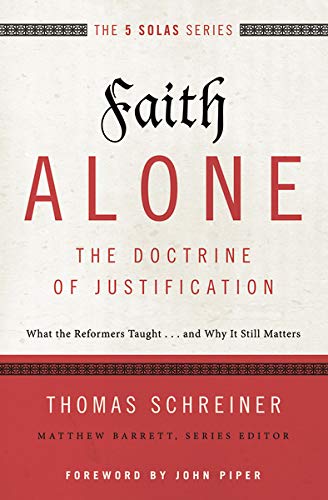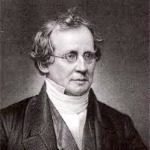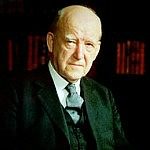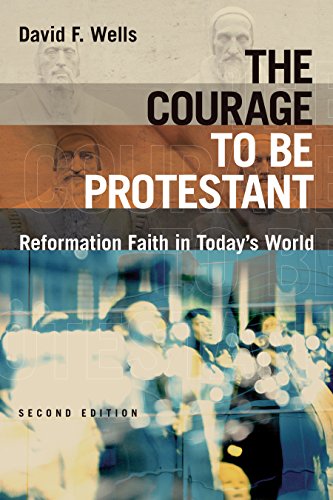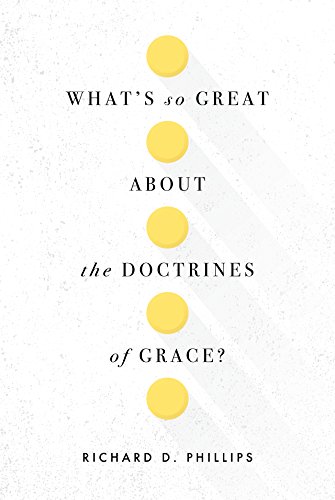Quotes about Theology-Calvinism
There is a softening of attitudes. This accounts in large measure for soft teaching. Rather than glorying in the grandeur of God’s eternal plan of gracious redemption before Arminian friends, [Calvinists] hem and haw about it, trying above all else to “get along.” Assuming that their consciences are not yet seared, they harbor a sense of guilt, knowing that they should defend truth against weak, unscriptural teaching that exalts man by lowering God. Yet, for the sake of “peace” they never speak out.
So in a Reformed system God’s highest value is His own glory, and in an Arminian system God’s highest value is the freewill of man.
Systematic Theology, Zondervan, 1994, p. 684. Used by Permission.
Get this book!
The doctrines of grace humble a man without degrading him and exalt a man without inflating him.
Although [Jonathan] Edwards had fought earlier against the biblical doctrine of divine sovereignty – a truth he once called a “horrible doctrine” – through personal study, he had become convinced that God irresistibly orders salvation of His chosen people, and he soon arose to be a guardian of this sacred truth.
The Unwavering Resolve of Jonathan Edwards (www.ligonier.org/store/the-unwavering-resolve-of-jonathan-edwards-hardcover), Copyright 2008 by Steven Lawson, Ligonier Ministries (www.ligonier.org). Page 10.
I am a Calvinist; I believe in election and predestination; but I would not dream of putting it under the heading of essential. I put it under the heading of non-essential… You are not saved by your precise understanding of how this great salvation comes to you. What you must be clear about is that you are lost and damned, hopeless and helpless, and that nothing can save you but the grace of God in Jesus Christ and only Him crucified, bearing the punishment of your sins, dying, rising again, ascending, sending the Spirit, regeneration. Those are the essentials… While I myself hold very definite and strong views on the subject, I will not separate from a man who cannot accept and believe the doctrines of election and predestination, and is Arminian, as long as he tells me that we are all saved by grace, and as long as the Calvinist agrees, as he must, that God calls all men everywhere to repentance. As long as both are prepared to agree about these things I say we must not break fellowship. So I put election into the category of non-essentials.
I normally prefer to avoid using the term Calvinism because it often provokes too much emotion and too many misconceptions to be useful if the goal is real understanding rather than merely vigorous debate. Besides, my preference has always been to deal with the doctrines of election, free will, predestination, and related ideas from the standpoint of the Bible, rather than all together as a theological system with a man’s name attached to it.
I am afraid there are Calvinists, who, while they account it a proof of their humility that they are willing in words to debase the creature, and to give all the glory of salvation to the Lord, yet know not what manner of spirit they are of. Whatever it be that makes us trust in ourselves that we are comparatively wise or good, so as to treat those with contempt who do not subscribe to our doctrines, or follow our party, is a proof and fruit of a self-righteous spirit. Self-righteousness can feed upon doctrines, as well as upon good works; and a man may have the heart of a Pharisee, while his head is stored with orthodox notions of the unworthiness of the creature and the riches of free grace.
Of all people who engage in controversy, we, who are called Calvinists, are most expressly bound by our own principles to the exercise of gentleness and moderation.
They who avow the doctrines distinguished by the name of Calvinistic, ought, if consistent with their own principles, to be most gentle and forbearing of all men, in meekness instructing them that oppose. With us, it is a fundamental maxim, that a man can receive nothing but what is given him from heaven (John 3:27). If, therefore, it has pleased God to give us the knowledge of some truths, which are hidden from others, who have the same outward means of information; it is a just reason for thankfulness to Him, but will not justify our being angry with them; for we are no better or wiser than they in ourselves, and might have opposed the truths which we now prize, with the same eagerness and obstinacy, if His grace had not made us to differ. If the man, mentioned in John 9, who was born blind, on whom our Lord graciously bestowed the blessing of sight, had taken a cudgel and beat all the blind men he met, because they would not see, his conduct would have greatly resembled that of an angry Calvinist.
Reformed theology is all about grace deciding to treat people better than they deserve, for the sheer glory of it all. Sometimes Reformed culture doesn’t look like that, feel like that, taste like that. It gives people exactly what they deserve, as judged by the Reformed person. But who exalted him as judge in the first place? Our true Judge stepped down to become our Friend. That theology of grace must translate into the sociology of grace as we treat one another better than anyone deserves, for the sheer glory of it all.
Reformed theologians say that God deems His own glory more important than saving everyone, and that (according to Romans 9) God’s glory is also furthered by the fact that some are not saved. Arminian theologians also say that something else is more important to God than the salvation of all people, namely, the preservation of man’s free will. So in a Reformed system God’s highest value is His own glory, and in an Arminian system God’s highest value is the free will of man (Wayne Grudem and Jeff Purswell).
Bible Doctrine: Essential Teachings of the Christian Faith, Zondervan, 1999, p. 291, www.zondervan.com.
The two theologies thus conceive the plan of salvation in quite different terms. One makes salvation depend on the work of God, the other on a work of man; one regards faith as part of God’s gift of salvation, the other as man’s own contribution to salvation; one gives all the glory of saving believers to God, the other divides the praise between God, who, so to speak, built the machinery of salvation, and man, who by believing operated it.
Saved by His Precious Blood: An Introduction to John Owen’s The Death of Death in the Death of Christ, in A Quest for Godliness: The Puritan Vision of the Christian Life, Crossway, 1990, p. 128-129.
It is most misleading to call this soteriology “Calvinism” at all, for it is not a peculiarity of John Calvin and the divines of Dort, but a part of the revealed truth of God and the catholic (universal) Christian faith. “Calvinism” is one of the “odious names” by which down the centuries prejudice has been raised against it. But the thing itself is just the biblical gospel.
I have my own private opinion that there is no such thing as preaching Christ and Him crucified, unless we preach what nowadays is called Calvinism. It is a nickname to call it Calvinism; Calvinism is the gospel, and nothing else. I do not believe we can preach the gospel, if we do not preach justification by faith, without works; nor unless we preach the sovereignty of God in His dispensation of grace; nor unless we exalt the electing, unchanging, eternal, immutable, conquering love of Jehovah; nor do I think we can preach the gospel, unless we base it upon the special and particular redemption of His elect and chosen people which Christ wrought out upon the cross; nor can I comprehend a gospel which lets saints fall away after they are called, and suffers the children of God to be burned in the fires of damnation after having once believed in Jesus. Such a gospel I abhor.
I will defy any man who has held a deep experience of his own odious depravity to believe any other doctrines but those which are commonly called Calvinism.
I do not believe that we can preach the gospel if we do not preach justification by faith, without works. Nor unless we preach the sovereignty of God in the dispensation of grace. Nor unless we exalt the electing, unchangeable, eternal, immutable, conquering love of Jehovah. Nor do I think we can preach the gospel, unless we base it upon the particular redemption which Christ made for His elect and chosen people. Nor can I comprehend a gospel which lets saints fall away after they are called.
We believe in the five great points commonly known as Calvinistic; but we do not regard these five points as being barbed shafts which we are to thrust between the ribs of our fellow-Christians. We look upon them as being five great lamps which help to irradiate the cross; or, rather, five bright emanations springing from the glorious covenant of our Triune God, and illustrating the great doctrines of Jesus crucified.
There are certain doctrines called Calvinistic, which I think commend themselves to the minds of all thoughtful persons for this reason mainly – they ascribe to God everything.
George Whitfield said, “We are all born Arminians.” It is grace that turns us into Calvinists.
When my spirit gets depressed, nothing will sustain it but the good old-fashioned Calvinistic doctrine.
I love the pure doctrine of unadulterated Calvinism. But if that be wrong – if there be anything in it which is false – I for one say, “Let that perish too, and let Christ’s name last forever. Jesus! Jesus! Jesus! Crown Him Lord of all!”
They believe the doctrine of election, but they have not the faith of God’s elect. They swear by final perseverance, but persevere in unbelief. They confess all the five points of Calvinism, but they have not come to the one most needful point of looking unto Jesus, that they may be saved.
If anyone should ask me what I mean by a Calvinist, I should reply, “He is one who says, Salvation is of the Lord.” I cannot find in Scripture any other doctrine than this. It is the essence of the Bible.
There is no soul living who holds more firmly to the doctrines of grace than I do, and if any man asks me whether I am ashamed to be called a Calvinist, I answer – I wish to be called nothing but a Christian; but if you ask me, do I hold the doctrinal views which were held by John Calvin, I reply, I do in the main hold them, and rejoice to avow it. But far be it from me even to imagine that Zion contains none but Calvinistic Christians within her walls, or that there are none saved who do not hold our views.
The doctrines of original sin, election, and effectual calling, final perseverance, and all those great truths which are called Calvinism – though Calvin was not the author of them, but simply an able writer and preacher upon the subject – are, I believe, the essential doctrines of the gospel that is in Jesus Christ. Now, I do not ask you whether you believe all this – it is possible you may not; but I believe you will before you enter heaven.
I believe nothing merely because Calvin taught it, but because I have found his teaching in the Word of God.
Thus the Calvinist says that God elects unbelievers and predestines them to become believers. The Arminian, on the other hand, says that God elects believers and predestines them to become His children… The question…is this: Are faith and repentance produced by free will and thus the cause of election, or are they produced by the Holy Spirit and thus the effect of election? According to Arminianism, election is that act of God whereby He foreordains to eternal life those whom He foresees will respond in faith to the gospel. According to Calvinism, election is that act of God whereby He foreordains to eternal life those who, because of sin, cannot respond in faith to the gospel.
What is Election? November 6, 2006, www.enjoyinggodministries.com. Used by Permission.
Often the person [wrongly] defines “Calvinism” as a rigid, fatalistic system of theology, devoid of life and joy, in which God is portrayed as a celestial bully who takes sadistic glee in sending people to hell whether they deserve it or not. “If that is what you mean by ‘Calvinist’, then I most assuredly am not one!”
What is Election? November 6, 2006, www.enjoyinggodministries.com. Used by Permission.
These doctrines build upon one another. The doctrine of total depravity establishes what the Bible teaches about the spiritual condition of unregenerate man and leaves one with the question “Who can be saved?” The doctrine of unconditional election then answers the question by declaring God’s sovereign choice in choosing to save people despite their depravity and based solely on God’s sovereign choice to redeem for Himself people from every tribe, tongue and nation. Next, the doctrine of limited atonement explains how God can be perfectly just and yet redeem those sinful people and reconcile them to Himself. The only solution to the depravity of man was for God to provide a Redeemer who would act as their substitute and suffer the wrath of God for their sins. He did this in the death of Christ, who, having been crucified, completely and totally “canceled out the certificate of debt…having nailed it to the cross” (Colossians 2:13-14). That leads to another question: how can a spiritually dead sinner who is hostile to God have faith in the atoning work of Christ on the cross? That question is answered by the doctrine of grace that is known as irresistible grace, the “I” in the acronym TULIP.
For Calvinism is just religion in its purity… Calvinism is, therefore, that type of thought in which there comes to its rights the truly religious attitude of utter dependence on God and humble trust in His mercy alone for salvation… This is why those who have caught a glimpse of these things, love with passion what men call “Calvinism,” sometimes with an air of contempt; and why they cling to it with enthusiasm.
Recommended Books
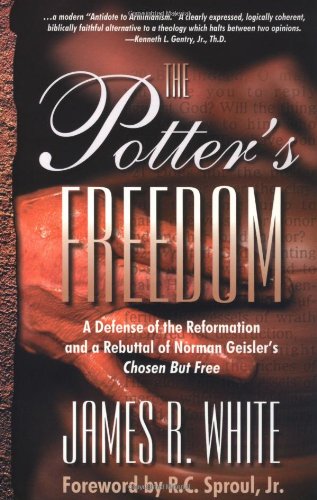
The Potter’s Freedom: A Defense of the Reformation and the Rebuttal of Norman Geisler’s Chosen But Free
James White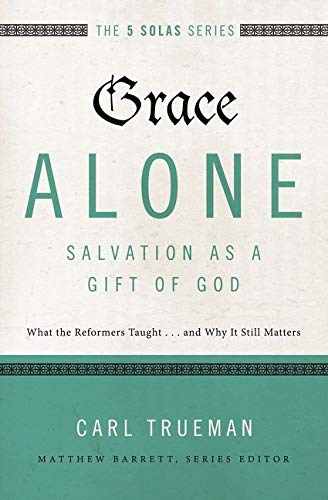
Grace Alone – Salvation as a Gift of God: What the Reformers Taught…and Why It Still Matters
Carl Trueman